News from the Institute
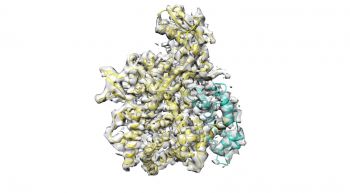
Legionella pneumophilia releases hundreds of enzymes that are instrumental for its propagation and subversion of the hosts’ immune system. Some of these virulence factors are extremely toxic, and their action needs to be strictly controlled to not kill host cells immediately. A team of scientists from IBC2 and EMBL Grenoble has now analyzed how Legionella keeps the family of SidE effectors in check and made a surprising discovery:
... (read more)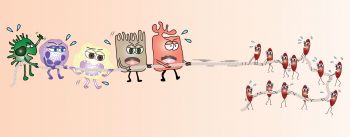
Bacterial pathogens present a major public health concern, especially given the increasing emergence of antibiotic-resistant strains. As such, understanding the molecular details governing bacterial infection is of prime importance. A group of researchers from the Dikic group at IBCII and the group of Danielle Malo at McGill University (Canada) recently joined forces and today, published a first collaborative article in Nature Microbiology.
... (read more)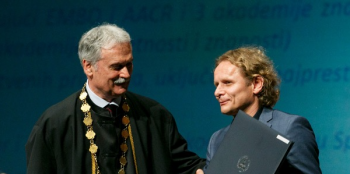
IBC2 Director Ivan Đikić received a honorary doctorate from Split University in a festive ceremony today, acknowledging his exceptional contribution to promoting science at Split University.
Since 2002, Ivan has built strong links with Split University’s School of Medicine, being a professor from 2002 till 2017, organizing multiple scientific events, promoting an active exchange and scientific collaborations with GU Frankfurt and – until recently – sustaining an outstation laboratory.
... (read more)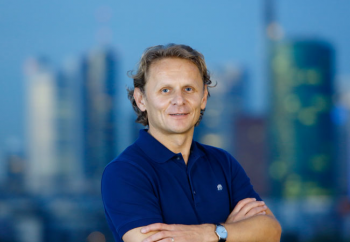
Today, the American Academy of Arts and Sciences announced the election of its new members for 2019. Amongst them is IBC2 director Ivan Đikić.
Since 1780, the Academy has regularly been electing new members to recognize their outstanding achievements in academia, the arts, business, philanthropy, and public affairs, in line with founders’ vision “to cultivate every art and science which may tend to advance the interest, honor, dignity, and happiness of a free, independent, and virtuous people.”
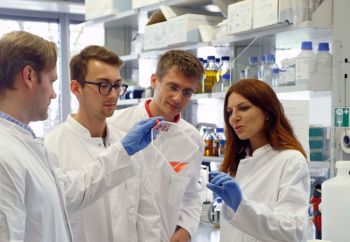
As published today in eLife, a team around IBC2 Group Leader Manuel Kaulich has developed a new technology for generating CRISPR/Cas gene perturbation reagents. They dubbed their innovation as “3Cs”, as gRNA are synthesized as covalently-closed circles.
It enables the fast and, most importantly, cloning-free production of gRNA and shRNA libraries. By this, the 3Cs technology overcomes one of the major caveats of conventional library production.
... (read more)